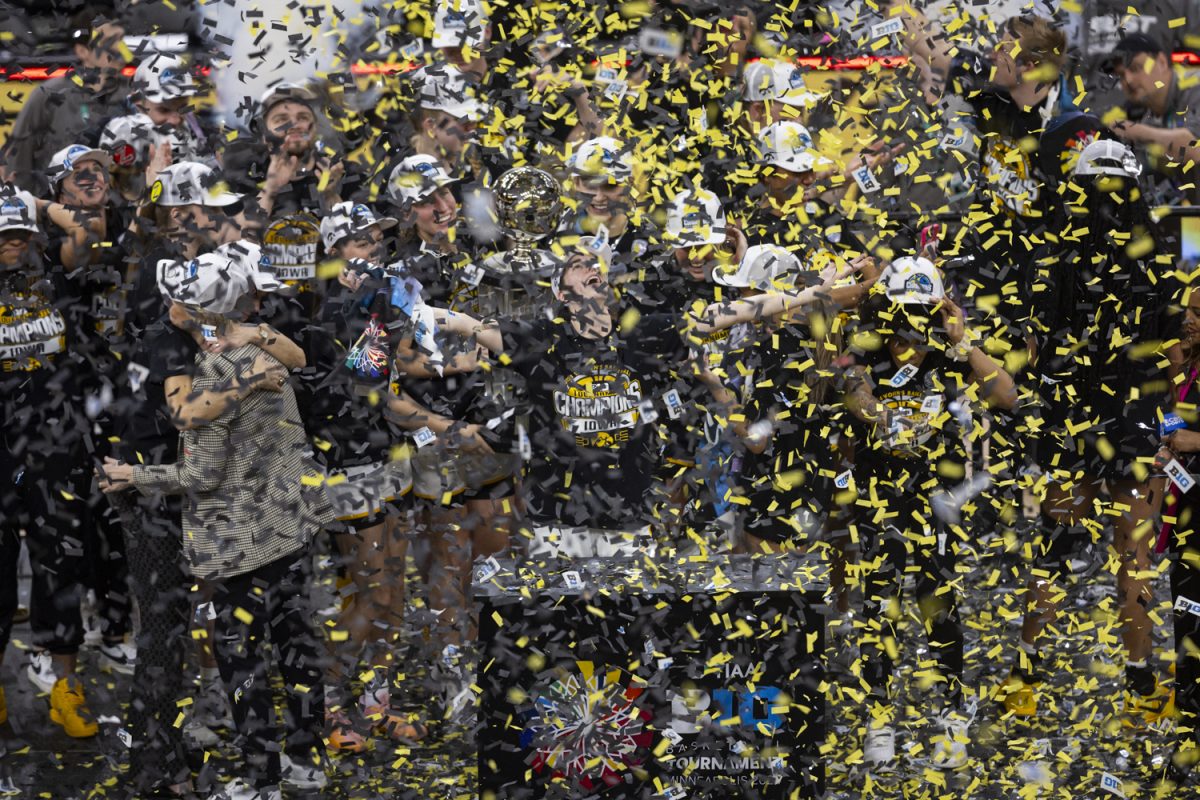Some might argue English is slowly dying, but it’s not dead. The University of Iowa is trying to do its part in reviving a language perpetually plagued by txtspk, curse words, and improper use of semicolons.
The UI has a reputation for literary excellence. Historically, Iowa City has maintained the its stature as a UNESCO City of Literature — the only one in North America — and the Iowa Writers’ Workshop has bred world-famous authors since its creation in 1936.
This year, the university’s incorporation of a writing certificate will give all students — not just those studying English — the opportunity to capitalize on all that the university has to offer. The certificate’s availability to all students reflects an admirable and intelligent mindset on the part of the university administration.
The writing certificate plays to the UI’s strengths, providing added value to an increasingly expensive degree. Those seeking a degree classically devoid of literature — whether it be business, engineering, or computer science — will have a chance to differentiate themselves in the workforce with a certificate from the literary mecca of the Western Hemisphere.
The institution of the new certificate program is a promising cry against a stark and unrelenting truth: Universities’ emphasis on science and mathematics at a national level has become a potent reality, swinging literary prowess to the academic back seat.
The progression of society as a whole is reflected most apparently in the nation’s systems of education; as technological advancement becomes increasingly sophisticated, the focus on literacy begins to dwindle.
Studies suggest that literacy in the traditional sense is failing. In an evaluation of the literacy-related habits and aptitude of the general American public, the National Endowment for the Arts discovered a disturbing trend: The average American seldom reads and comprehends little.
What’s more disturbing, the findings reveal that while reading and comprehension is traditionally aligned quite directly with the college education, the percentage of college graduates who read actively has declined. The agency’s study, fittingly titled "To Read or Not to Read," suggests another contradiction to a common belief: Reading and writing skills are, in fact, quite necessary and increasingly marketable.
According to the report, for four-year graduates, writing in English is the skill most commonly perceived as "very important" by employers at 90 percent. Reading comprehension ranked third out of five. Math and science were fourth and fifth, respectively.
But even as important as these skills seem to be employers, the same survey found that most new employees were deficient in these areas. Only 35 percent of corporate employers reported that the majority of their new employees possess this skill — providing those seeking a UI writing certificate an eventual upper hand in a competitive workforce.
While the top-earning degrees continued to be dominated by the field of engineering, the perceived importance of English-language proficiency continues to falter — resulting in a waves of hopeful job-seekers missing a key skill. Of course, the debate between science and the liberal arts is nothing new.
Consider C.P. Snow’s notable 1959 lecture "The Two Cultures," in which the British scientist-novelist argues that the ideals and strategies of the Western world as a whole are constantly pitted in the paralysis of a rather imminent paradox: Modern intellectualism is split between the humanities and the sciences. Snow argued, most famously, that this is academic divide is no good. With an emphasis on the sciences comes, ultimately, a loss of culture and a decrease in critical thinking skills, specifically in relation to communicative comprehension.
"Technology is … a queer thing. It brings you gifts with one hand and stabs you in the back with the other," Snow said.
In an increasingly technology- and science-driven world, the prospect of a program that allows for a diverse student body, made up of hundreds of majors and minors, to indulge and specialize in the art of writing is a refreshing one.
In a city that for generations has prided itself on its standing as an international literary mecca, increasing the availability of literature-related resources is a progressive and much-needed stride.
In order to preserve its reputation as a beacon of hope for the maintenance of literature and the humanities as an important pillar of the American education, the university should continue to not only create such programs but continually improve and invest in them.






